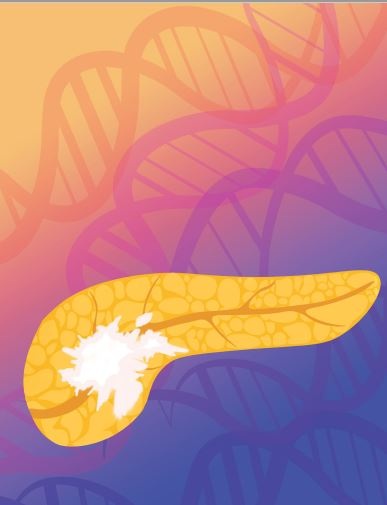Novel AI Blood Test Determines Response to Cancer Therapy
Posted on 23 May 2025
Expanding treatment options for pancreatic cancer patients is vital as more experimental therapies become available for the condition. However, swift action is essential, as many pancreatic cancer cases are diagnosed at advanced stages, where the disease can progress rapidly. Clinicians currently rely on imaging tools to monitor the response to treatments and tumor progression, but these tools often provide results that are delayed and less reliable, especially for patients receiving immunotherapies. Immunotherapy can complicate the interpretation of these results. To address these challenges, an artificial intelligence (AI) method that detects DNA fragments shed by tumors into a patient’s blood could help clinicians assess treatment effectiveness more quickly and accurately.
Researchers at Johns Hopkins Kimmel Cancer Center (Baltimore, MD, USA) tested a technique called ARTEMIS-DELFI (tumor-independent genome-wide cfDNA fragmentation profiles and repeat landscapes) using blood samples from participants in two major clinical trials of pancreatic cancer treatments. The results showed that ARTEMIS-DELFI could identify therapeutic responses more efficiently. Alongside ARTEMIS-DELFI, another method called WGMAF (tumor-informed plasma whole-genome sequencing) was also tested to analyze mutations. The study found that both ARTEMIS-DELFI and WGMAF were better predictors of treatment outcomes compared to imaging or other clinical and molecular markers two months after the start of treatment. However, ARTEMIS-DELFI was considered the superior method due to its simplicity and broader applicability.

In their study published in Science Advances, the researchers evaluated these two approaches for monitoring treatment response in patients participating in the phase 2 CheckPAC trial, which focused on immunotherapy for pancreatic cancer. The first method, WGMAF, analyzed DNA from tumor biopsies alongside cell-free DNA in blood samples to detect treatment responses. The second method, ARTEMIS-DELFI, employed machine learning to analyze millions of cell-free DNA fragments from just the patient’s blood samples. Both methods successfully identified which patients were responding to the treatments. However, not all patients had tumor samples, and when they did, many samples contained only a small proportion of cancer cells, mixed with normal pancreatic and other tissues, which made the WGMAF results harder to interpret.
ARTEMIS-DELFI, on the other hand, was simpler, worked with a larger group of patients, and produced more reliable results. The researchers then validated ARTEMIS-DELFI as an effective tool for monitoring treatment response in the second clinical trial, the PACTO trial. The results confirmed that ARTEMIS-DELFI could identify which patients were responding to treatment just four weeks after therapy began. The next step for the research team will be conducting prospective studies to test whether ARTEMIS-DELFI can help clinicians identify effective therapies more efficiently and improve patient outcomes. Additionally, a similar approach may be applied to monitor other cancers. Earlier this year, the team conducted a study showing that a variation of this cell-free fragmentation monitoring method, DELFI-TF, was also useful in evaluating the response to colon cancer therapy.
“The ‘fast-fail’ ARTEMIS-DELFI approach may be particularly useful in pancreatic cancer where changing therapies quickly could be helpful in patients who do not respond to the initial therapy,” said lead study author Carolyn Hruban. “It’s simpler, likely less expensive, and more broadly applicable than using tumor samples.”
Related Links:
Johns Hopkins Kimmel Cancer Center














